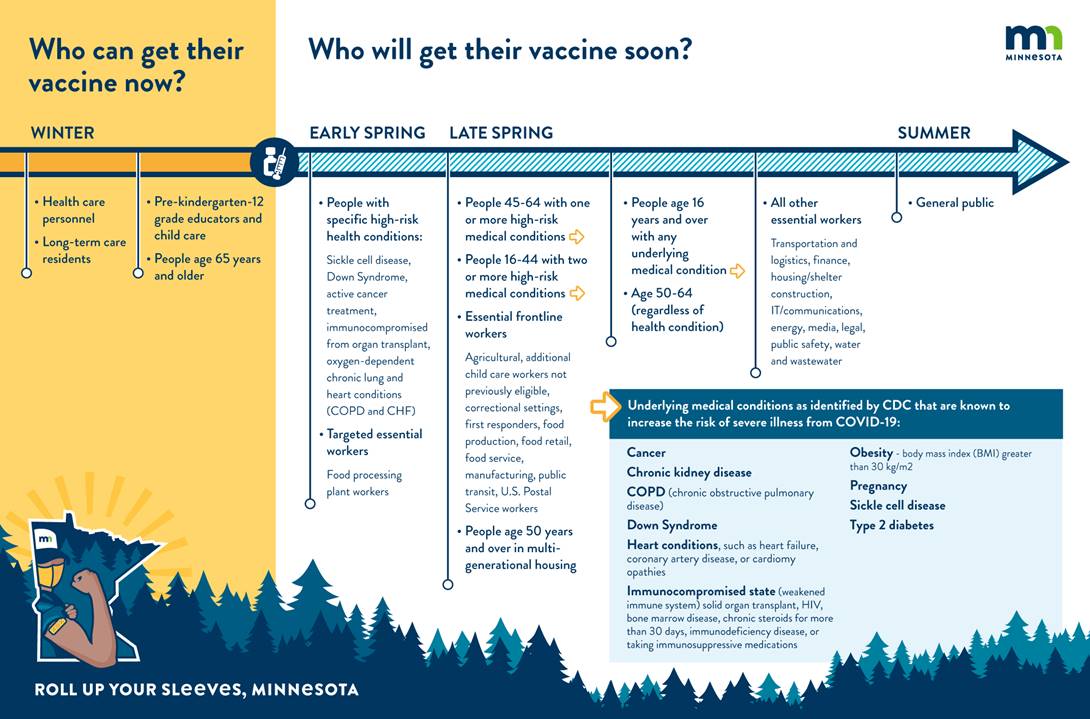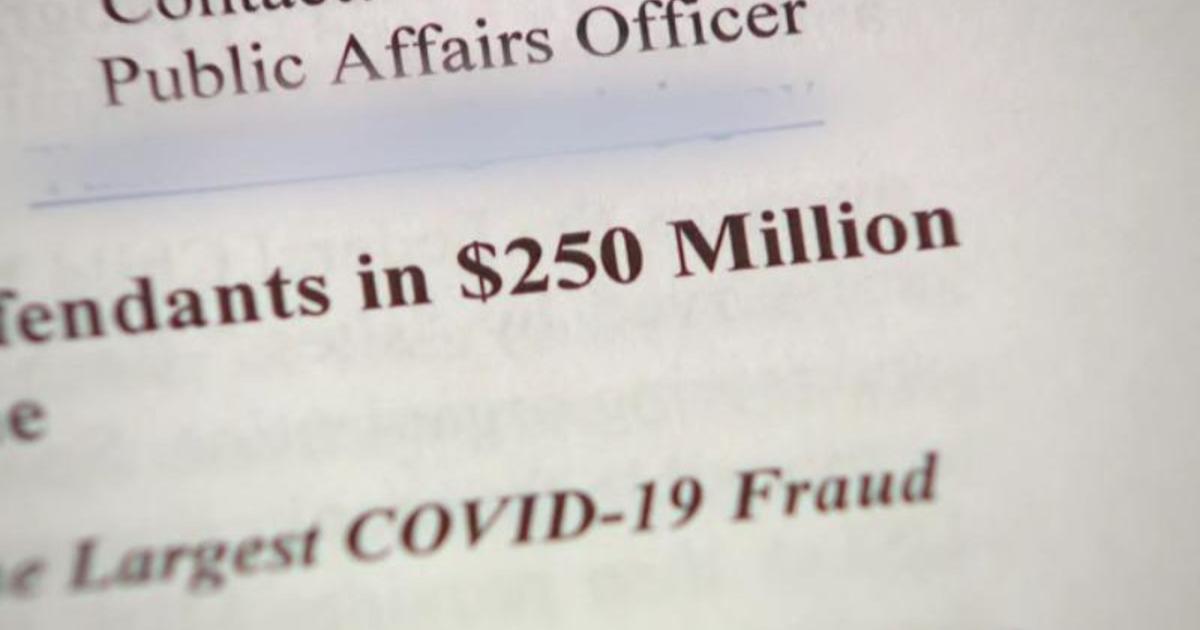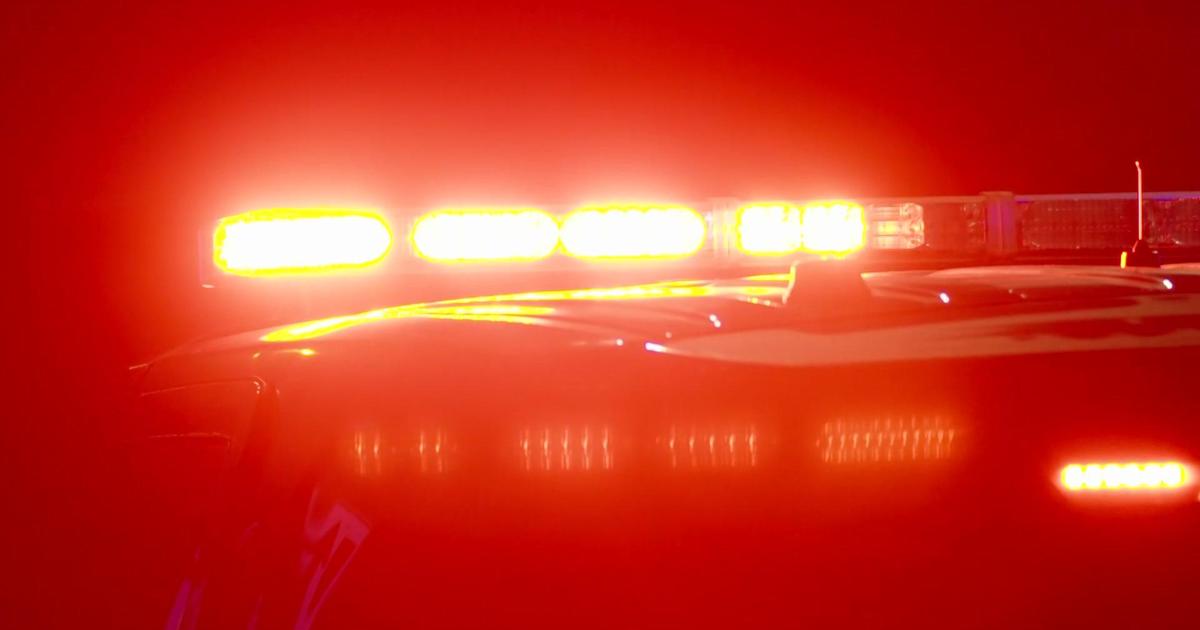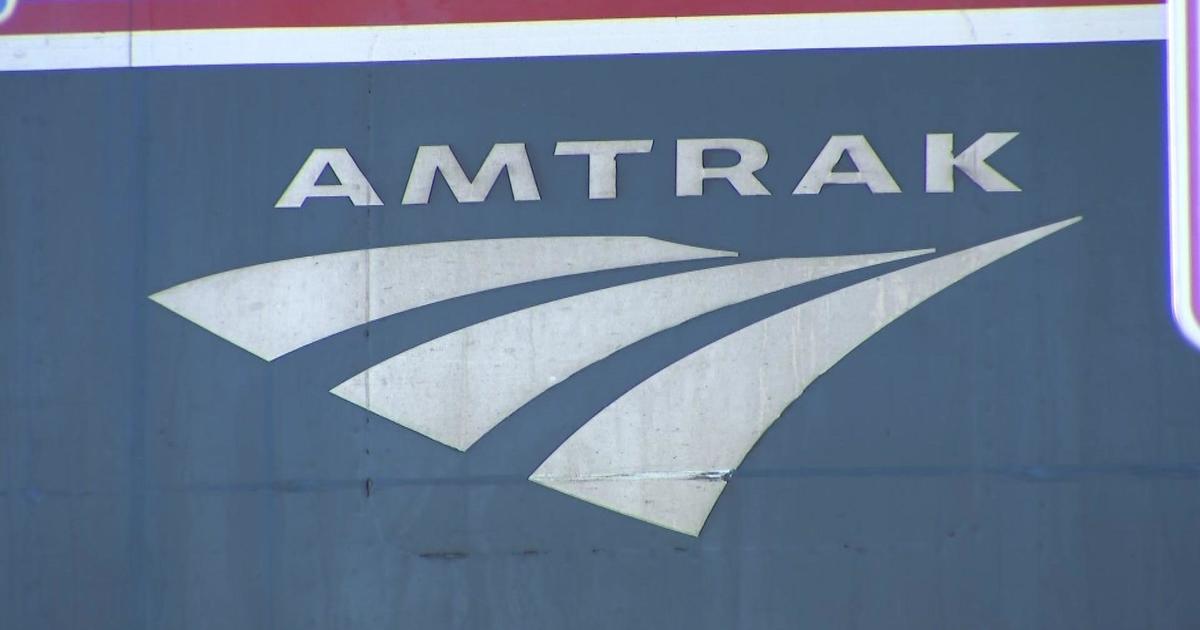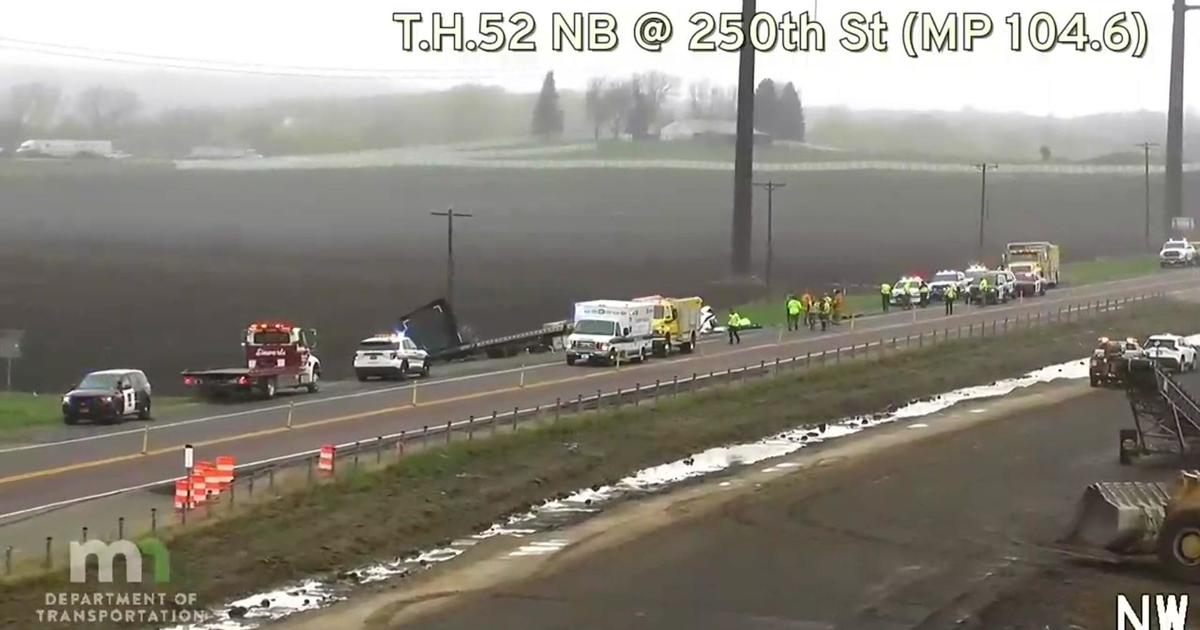Next In Line For Vaccine Will Be Minnesotans With Certain Underlying Conditions, Food Processing Workers
ST. PAUL, Minn. (WCCO) -- The state is expected to expand vaccine access to Minnesotans with certain underlying health conditions and food processing plant workers by April after a majority of Minnesota seniors are inoculated against COVID-19, Gov. Tim Walz announced Thursday.
A vaccine timeline detailed at a news conference estimates all Minnesota adults will be eligible by June.
"The thought of being walking down those streets at Dan Patch Boulevard with a corndog in my hand is like the happiest thought I can imagine," Walz said. "That is within our reach."
Before that happens, Walz said at least 70% of Minnesotans 65 and older would be vaccinated. Officials expect to reach this benchmark by the end of March. As of Thursday, the governor said 43% of the more than 900,000 Minnesota seniors have had at least one dose.
The next group, expected by April, will be people with specific high-risk health conditions, like chronic lung and heart conditions and Sickle cell disease, and workers at food processing plants, where there were large outbreaks across the country and in Minnesota.
"These were some of the largest and most severe outbreaks that we saw. And we know that the population working in these plants are significantly [Black, Indigenous and People of Color] community members and people living in multi-generational households," said Health Commissioner Jan Malcolm. "As one of the major producer states, the food supply — the entire nation — relies on us."
RELATED: Health Campaign Urges Minnesota Students To Get COVID Tested Every 2 Weeks
This announcement comes as the state's cases and hospitalizations are declining. Deaths in long-term care facilities, hit especially hard during the pandemic, have declined 97%, Walz said.
Minnesota's vaccine trajectory could accelerate rapidly when more vaccines become available, which state and federal officials both expect. Moderna and Pfizer have pledged a boost in production and Johnson & Johnson's single-shot vaccine is expected to get approved by the FDA within days.
The state's timeline does not account for any of these factors and it's a conservative prediction. Officials are making their estimates based on current vaccine levels, which have seen a weekly increase of about 5% per week. That will likely change.
"We're not crafting something that's super conservative so we can step over it," Walz said. "We're crafting it based on the data that's there so we don't get in that situation we got into December, where we got over promised."
Under the state plan as it stands now, vaccines will expand in late spring to include Minnesotans ages 45-64 with one high-risk condition and Minnesotans ages 16-44 with two or more high-risk conditions. These conditions include cancer, obesity, type 2 diabetes, heart conditions and pregnancy, according to the U.S. Centers for Disease Control.
RELATED: Best Buy To Offer PTO To Vaccinated Hourly Employees
At the same time, essential workers in agriculture, retail, food service, manufacturing, mail delivery, public transit and correctional settings will become eligible, in addition to Minnesotans ages 50 and older in multi-generational housing.
Toward the end of spring, younger Minnesotans with underlying conditions will be prioritized. The last group of essential workers to be vaccinated will be those in transportation, finance, housing construction, media, public safety and the legal profession.
All Minnesota adults should have the chance to get the vaccine by summer, Walz said, but most of them will already have been eligible. The Minnesota Department of Health estimates the "general population" category — those people who don't otherwise meet other qualifications to be vaccinated sooner — is about 300,000 people. Children are not yet approved for any COVID-19 vaccine.
The state's vaccination push began late last year, starting with residents in long-term care facilities and frontline health care workers. Last month, the rollout expanded to include pre-kindergarten through 12th grade teachers, child care workers and Minnesotans ages 65 and older.
The vaccine is being distributed at hospitals, clinics, pharmacies and community sites across the state. Nearly 20,000 doses are being administered in the state each day.
Walz said one year ago Thursday marked the first day a known Minnesotan infected with COVID-19 began showing symptoms. Since then, more than 480,000 people in Minnesota have tested positive for the virus and 6,450 people have died.
